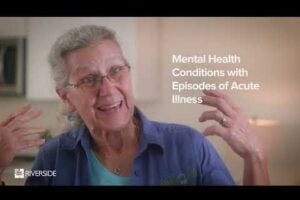In some cases, COVID-19 patients may present with neurological symptoms. Having an MRI while at the hospital, as well as monitoring after hospitalization, are important tools in an optimal treatment strategy. Learn more.
WASHINGTON– Dr. Majid Fotuhi, MD, PhD, a nationally-recognized neurologist, is warning about neurological issues in patients who suffer from COVID-19.
Memory Loss
“Our experience with other forms of respiratory viruses that affect the brain suggest that in the long-term patients may develop depression, insomnia, Parkinson’s disease, memory loss, or accelerated aging in the brain,” elaborated Fotuhi.
Dr. Fotuhi points out that many patients with COVID-19 may have no noticeable neurological symptoms at first; but in some cases, patients may present with neurological symptoms even before they have fever, cough, or shortness of breath. He stresses that having an MRI while at the hospital will be an important tool in developing an optimal treatment strategy for these patients. In addition, patients will need to be monitored in a few months after their hospitalization as they may have new symptoms not experienced early in their disease process.
To date, the focus on COVID-19 patients has been more on keeping them alive and less on examining the impact the disease is having on their long-term health. Fotuhi, medical director of Tysons Corner-based NeuroGrow Brain Fitness Center and affiliate staff at Johns Hopkins Medicine, is encouraging more study of the neurological effects of the disease to promote better treatments.
Neurological Symptoms in Coronavirus
“We now know that COVID patients can have varying levels of neurological symptoms. As a medical community, we have for now justifiably focused on the immediacy of saving their lives. However, as time goes on, we will need to better assess, document, and treat the neurological manifestations of this disease and keep in mind that patients who survive COVID-19 may have long-term brain deficits. The better we understand the brain-related aspects of COVID-19, the better we can address them and help patients have productive, fulfilling lives,” explained Fotuhi.
The urgency of caring for COVID-19 patients in recent week coupled with the difficulty in evaluating patients that are contagious has made it more complicated to determine the extent of neurological issues associated with the disease. Despite these limitations, a dozen case reports and anecdotal findings are painting a sketch of what may be going on inside the brains of patients with COVID-19.
Fotuhi recently wrote a blog and co-authored a paper that will be published in the Journal of Alzheimer’s Disease on the topic of COVID-19’s effects on the brain, nerves, and muscles. He points out that many COVID-19 patients experience severe neurological problems such as stroke, seizures, confusion, dizziness, paralysis, and/or coma.
One study from Wuhan, China, showed that 45% of patients with severe COVID-19 illness experience marked neurological deficits.
Another study from France showed 84% of ICU patients with COVID-19 have positive abnormalities on their neurological examination.
3 Stages of COVID-19’s Brain Impact
Fotuhi groups COVID-19’s neurological manifestation into three stages.
- In NeuroCovid Stage I, the virus damage is limited to epithelial cells of nose and mouth.
- In NeuroCovid Stage II, patients may experience blood clots in their brain or have auto-antibodies that damage their peripheral nerves and muscles. In this stage, the virus can trigger a flood of inflammatory markers, called cytokine storm, which begin in the lungs and travel throughout all body organs. This may lead to blood clots resulting in a series of strokes that can kill neurons.
- In NeuroCovid Stage III, the blood brain barrier, a protective insulation in blood vessels of the brain, is damaged and patients may develop seizures or encephalopathy. In this rare late stage, the virus particles themselves may invade the brain directly, including the brain region that controls breathing.
Coronavirus, Altered Mental Status and Stroke
In another study, University of Cincinnati researchers and three Italian institutions reviewing neuroimaging and neurological symptoms in patients with COVID-19 may shed light on the virus’s impact on the central nervous system.
The findings, published in the journal Radiology, reveal that altered mental status and stroke are the most common neurological symptoms in COVID-19 patients, which authors say could help physicians notice “red flags” earlier.
Largest & First COVID-19 Neuroimaging Study
“Studies have described the spectrum of chest imaging features of COVID-19, but only a few case reports have described COVID-19 associated neuroimaging findings,” says lead author Abdelkader Mahammedi, MD, assistant professor of radiology at UC and a UC Health neuroradiologist. “To date, this is the largest and first study in literature that characterizes the neurological symptoms and neuroimaging features in COVID-19 patients. These newly discovered patterns could help doctors better and sooner recognize associations with COVID-19 and possibly provide earlier interventions.”
Researchers in this study investigated neurological symptoms and imaging findings in patients from three major institutions in Italy: University of Brescia, Brescia; University of Eastern Piedmont, Novara; and University of Sassari, Sassari. Italy was the second epicenter of the spread of COVID-19, resulting in over 30,000 deaths.
725 COVID-19 Patients
The study included images from 725 hospitalized patients with confirmed COVID-19 infection between Feb. 29 and April 4. Of these, 108 (15%) had serious neurological symptoms and underwent brain or spine imaging. Most patients (99%) had brain CT scans, while 16% had head and neck CT imaging and 18% had brain MRI.
Investigators found that
- 59% of patients reported an altered mental state
- 31% experienced stroke,
which were the most common neurological symptoms. Patients also experienced:
- headache (12%),
- seizure (9%)
- dizziness (4%),
among other symptoms.
“Of these 108 patients, 31, or 29%, had no known past medical history. Of these, aged 16 to 62 years, 10 experienced stroke and two had brain bleeds,” Mahammedi says. “Seventy-one, or 66%, of these patients had no findings on a brain CT, out of which 7 of them (35%) brain MRI showed abnormalities.”
He adds that altered mental status was more common in older adults.
While results show that the neuroimaging features of patients with COVID-19 vary, and an altered mental status and stroke are the most prevalent in patients, Mahammedi says this study reveals that there are other conditions to be on the lookout for.
“This topic definitely needs more research,” he says. “Currently, we have a poor understanding of the neurological symptoms in COVID-19 patients, whether these are arising from critical illness or from direct central nervous system invasion of SARS-CoV-2. We hope further study on this subject will help in uncovering clues and providing better interventions for patients.”
-
Imaging in Neurological Disease of Hospitalized COVID-19 Patients: An Italian Multicenter Retrospective Observational Study
Abdelkader Mahammedi, et. al. May 21, 2020. https://doi.org/10.1148/radiol.2020201933
SOURCES:
- NEUROGROW BRAIN FITNESS CENTER
A Harvard- and Johns Hopkins-trained neurologist and neuroscientist, Dr. Fotuhi is widely regarded as an authority in the field of memory, Alzheimer’s Disease, concussion treatment, ADHD, and increasing brain vitality at any age.
Dr. Fotuhi’s NeuroGrow Brain Fitness Program uses effective brain training, biofeedback, and behavioral modification techniques for enhancing cognitive function. The program will also be used for patients suffering from post-COVID neurological issues.
-
UC study uncovers clues to COVID-19 in the brain, University of Cincinnati











